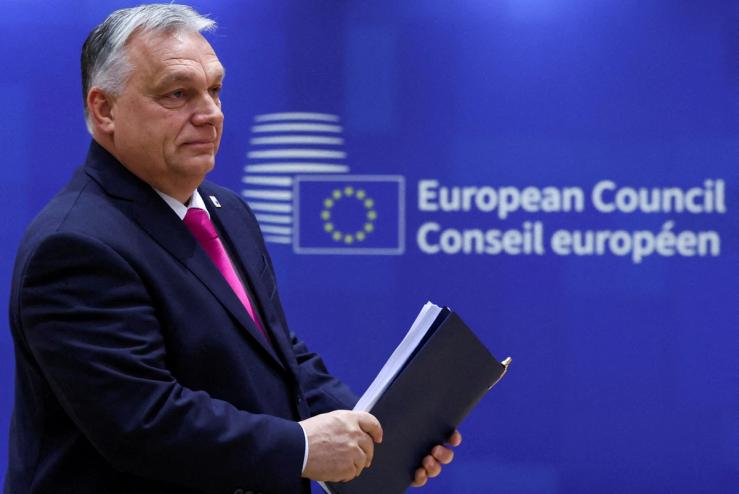The News
The European Union unlocked a $50 billion aid package for Ukraine, with all 27 member states agreeing to the support after Hungarian Prime Minister Viktor Orbán had previously blocked the deal.
“We have a deal. Unity,” European Council head Charles Michel wrote on X. “All 27 leaders agreed on an additional €50 billion support package for Ukraine within the EU budget. This locks in steadfast, long-term, predictable funding for Ukraine.”
Ukrainian Prime Minister Denys Shmyhal hailed the decision, calling it a “a significant contribution to our joint victory.”
SIGNALS
EU leaders had debated removing Orbán from voting process
Some EU leaders were earlier eyeing a rarely-used measure in the Treaty of the European Union to overcome Orbán’s roadblocks. Debates sprung up last week about invoking Article 7, which can be used to bar a member state from voting on the bloc’s decisions, Politico reported. If Budapest had attempted to block Thursday’s aid package, “using Article 7 to strip Hungary of its voting rights could become a real option,” one diplomat told the outlet. Using the measure would have signaled a departure from how Brussels typically responds to threats from Hungary: In the past, the EU has frozen aid to Budapest in response to Orbán’s posturing.
Europe’s rhetoric over Ukraine doesn’t match funding offered
The $50 billion aid package agreed upon by Brussels on Thursday is a relative drop in the bucket for the EU, representing about 0.08% of its GDP over the four years it plans to release the aid, The Economist noted. A “gap exists between how Europe describes the situation and the means it is putting up to tackle it,” the paper noted, since European politicians have loudly proclaimed that the continent needs to take aggressive action to address the war. “Europe is a rich place. It would be far worse off if Ukraine lost the war.”
US funding a matter of future security
Support for Ukraine has hit major roadblocks in the U.S., where Republicans for months have held up an aid package that could be crucial for Kyiv. A lack of funding could mean that Ukraine loses the war, Steven Pifer, the former U.S. ambassador to Ukraine, noted in The Hill. If Republicans continue to prevent aid from reaching the nation, “they will bear a grotesque responsibility,” he wrote. The need for funds goes beyond just helping a European ally, Pifer added: It’s in Washington’s interests to ensure the country stays protected from Russian forces. An emboldened Moscow could launch an attack on a NATO state, requiring the U.S. to send troops instead of just funds or weapons. “The value of stopping Russia in Ukraine should seem self-evident,” Pifer said.



